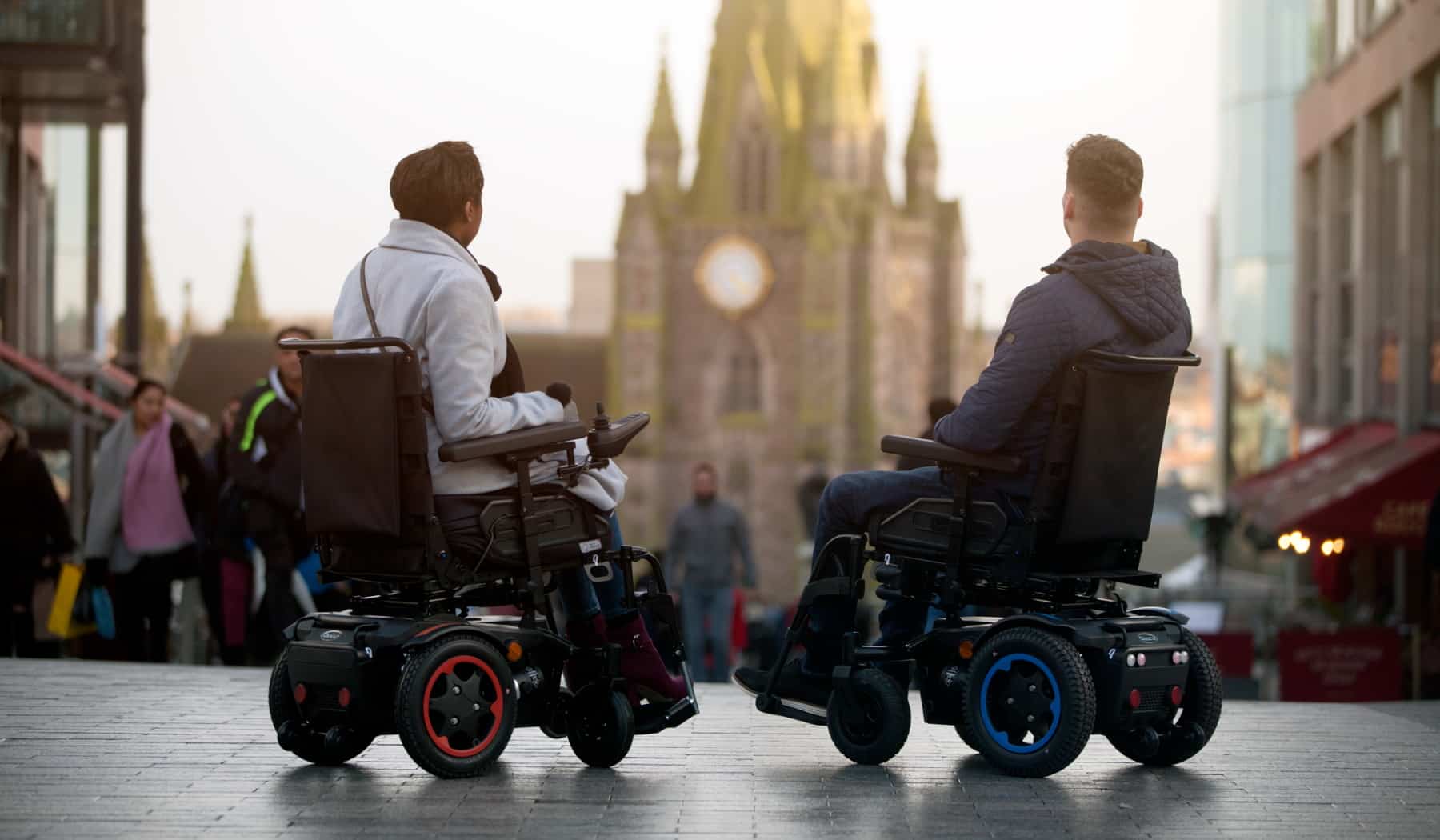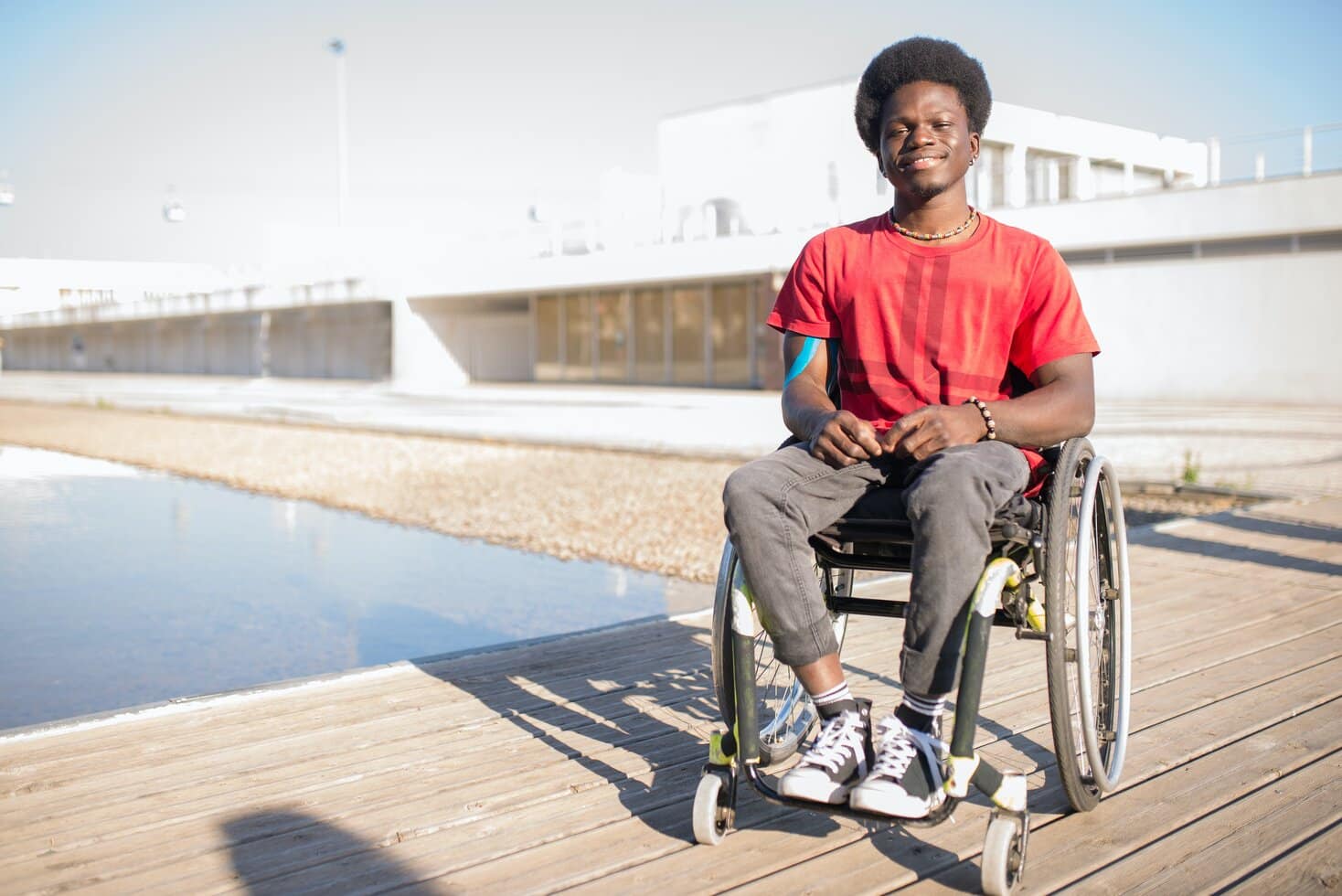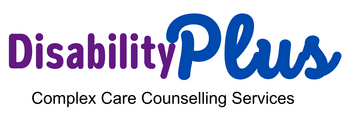Real Stories, Real Lives, Real Impact, Lived Experience Matters
Specialist Spinal Cord Injury Counselling, Therapists with a SCI
Questions & Enquiries
Self-Paid Counselling Referral Form & Pricing
Free Funding Referral Form
Professional Referrals
Our Other Services
Real Stories, Real Lives, Real Impact, Lived Experience Matters
Specialist Spinal Cord Injury Counselling with Lived Experience
"Your journey with a spinal cord injury is uniquely yours. We're here to listen, learn, and empower you to rediscover your strength and well-being."
Adjusting to life with a spinal cord injury, whether you’re living with tetraplegia or paraplegia, can feel overwhelming.
You don’t have to navigate this journey alone. We understand your unique challenges, and our team of psychologists, Tetraplegic and paraplegic, is here to provide both practical solutions and the emotional support you need.
Whether you’re newly injured, facing the prospect of life-changing surgery, or seeking support to overcome challenges years later, we’re here for you.
Lived Experience Matters
Questions & Enquiries
Self-Paid Referral Form & Pricing
Free-Funding Referral Form
Professional Referrals

What to Expect from Counselling
Let’s talk about how our specialised psychology service can support you on your journey with a spinal cord injury (SCI). Living with an SCI brings unique challenges, and we’re here to walk alongside you, offering professional expertise and the understanding that comes from lived experience.
From the moment you reach out, we aim to create a safe and supportive space for you. We know sharing your experiences and vulnerabilities can be difficult, so our initial sessions focus on building trust and rapport. Our psychologists have SCI themselves, so they truly understand what you’re going through. They’ve navigated similar physical, emotional, and social adjustments, and their journeys can offer hope and inspiration.
We’ll work together to understand your specific needs and goals. We’ll also take the time to learn about your background, medical history (specifically related to your SCI), current emotional well-being, and any challenges you’re facing. This comprehensive assessment will allow us to create a personalised treatment plan for you.
Our approach to therapy is grounded in evidence-based practices. We utilise proven therapies like Cognitive Behavioural Therapy (CBT) and Acceptance and Commitment Therapy (ACT), among others, to help you develop coping skills, manage your emotions effectively, and build resilience. We’ll explore the root causes of any challenges you’re experiencing, whether it’s depression, anxiety, PTSD, body image concerns, grief, relationship difficulties, or social isolation.
We’ll also focus on practical strategies for improving your daily life. This might involve learning pain management techniques, exploring ways to maximise the use of your assistive devices, developing skills to advocate for your accessibility needs, improving your communication and social skills, or supporting you in pursuing vocational or educational goals. Our psychologists with SCI can share practical tips and strategies drawn from their own lived experiences, offering valuable insights and support.
One of the most powerful aspects of our service is the peer support we offer. Working with a psychologist who has SCI can make a profound difference. They understand the nuances of living with an SCI in a way that others may not. This shared understanding can be incredibly validating and can reduce feelings of isolation. Our psychologists are role models, demonstrating that a fulfilling life is possible despite the challenges.
Our support doesn’t end after a few sessions. We’re here for the long haul. Ongoing therapy sessions provide continued support, allow us to adjust your treatment plan as needed, and help you reinforce your coping skills. We’ll also help you develop strategies for managing potential setbacks and connect you with other resources within the SCI community, such as support groups and peer mentors.
Our goal is to empower you to live your best life. We want to help you build confidence, develop self-advocacy skills, and navigate life more resiliently. We believe in your strength and potential and are here to support you every step of the way.
Contact us if you cannot find what you are looking for
"Your journey with a spinal cord injury is uniquely yours. We're here to listen, learn, and empower you to rediscover your strength and well-being."
Adjusting to life with a spinal cord injury, whether you’re living with tetraplegia or paraplegia, can feel overwhelming.
You don’t have to navigate this journey alone. We understand your unique challenges, and our team of psychologists, Tetraplegic and paraplegic, is here to provide both practical solutions and the emotional support you need.
Whether you’re newly injured, facing the prospect of life-changing surgery, or seeking support to overcome challenges years later, we’re here for you.
Lived Experience Matters
SCI Psychologists Only, Why?
Specialist Counselling Service, How?
Newly Acquired SCI Support?
Mental Health Support, How?
Why Choose Us?
Specialist Spinal Cord Injury Counselling
What to Expect from the Start of Counselling
From the moment you reach out, we aim to create a safe and supportive space for you. We know sharing your experiences and vulnerabilities can be difficult, so our initial sessions focus on building trust and rapport.
Support for Daily Triggers
Counselling can help you navigate the daily life triggers that can impact your well-being after a spinal cord injury (SCI). We understand that even with effective coping strategies, daily life can present challenges that stir up difficult emotions.
How We Support Your Mental Health
Living with a spinal cord injury (SCI) can bring about a range of emotional and mental health challenges. It’s important to know that these experiences are shared and that seeking support is a sign of strength. We’re here to help you navigate these challenges and build a life of well-being and resilience
Explore Why, Specialist Counselling
The psychological impact of an SCI is profoundly personal and varies significantly from individual to individual. Therefore, we prioritise a tailored approach, carefully assessing each client’s unique needs, experiences, and goals to develop a personalised treatment plan.
Counselling for Carers
Caring for someone with a spinal cord injury (SCI) is a profound act of love and dedication. Whether you’re a parent, partner, family member, or friend, taking on this role brings significant changes and challenges.
Testimonials
Don’t just take our word for it. Our testimonials offer powerful, real-life stories from individuals who’ve faced similar challenges and found strength, resilience, and renewed purpose
Contact us if you cannot find what you are looking for

Real Stories, Real Lives, Real Impact, Lived Experience Matters
Specialist Spinal Cord Injury Counselling, Therapists with a SCI
Adjusting to life with a spinal cord injury, whether you’re living with tetraplegia or paraplegia, can feel overwhelming.
You don’t have to navigate this journey alone. We understand your unique challenges, and our team of psychologists, Tetraplegic and paraplegic, is here to provide both practical solutions and the emotional support you need.
Whether you’re newly injured, facing the prospect of life-changing surgery, or seeking support to overcome challenges years later.
We provide practical solutions and the emotional support you need.
Take the first step towards a brighter future.
What makes us specialist:
♥ Tetraplegia & Paraplegia Therapists
♥ Team of Registered BACP & BPS Psychologists
♥ Free Funding Applications (most regions England & Wales)
♥ Self-Paid, Start Counselling within Seven Working Days
♥ Professional Organisation Referrals from GPs, Mental Health Providers, Charities and Schools
We are a Team that Understands what it’s like Living with a Spinal Cord Injury.
Lived Experience Matters
Quick Navigation Guide
This webpage is your comprehensive guide to spinal cord injury counselling topics. We’ve designed it to be easy to navigate, so you can quickly find the information you need.
Simply click on the button corresponding to the section you’re interested in, and you’ll be transported directly to that content. It’s that simple!
Why Do We Only Use Psychologists?
How Do We Support People With A New Spinal Cord Injury?
What to Expect in SCI Counselling
How We Support Daily Life Triggers
Free Funding Referral Form
Self-Paid Pricing & Referral Form
All GP, NHS & Organisation Referrals
Enquiries & Questions
Contact us if you cannot find what you are looking for

Psychologists, why do we support clients with this level of expertise?
While both counsellors and psychologists can provide valuable mental health support, psychologists possess specific qualifications and training that can be particularly beneficial for individuals navigating the complexities of a spinal cord injury (SCI).
At Disability Plus, we exclusively work with psychologists due to their specialised expertise.
Extensive Training and Education:
Psychologists in the UK hold a doctorate (PhD or DClinPsy) in psychology, representing several years of advanced study and supervised clinical experience.
This rigorous training equips them to deeply understand SCI’s psychological, emotional, and behavioural aspects.
This depth of knowledge is essential for effectively addressing the complex interplay of factors that can affect mental well-being after an SCI.
Assessment and Diagnosis:
Psychologists are trained to conduct comprehensive assessments and provide diagnoses for mental health conditions that may arise following an SCI, such as depression, anxiety, PTSD, or adjustment disorders.
This diagnostic ability is crucial for developing a targeted and effective treatment plan. At Disability Plus, accurate diagnosis is the foundation of effective therapy.
Evidence-Based Therapies:
Psychologists are skilled in utilising evidence-based therapies, such as Cognitive Behavioral Therapy (CBT) and other specialised approaches.
These therapies have been scientifically proven effective in addressing the challenges associated with SCI.
Psychologists can tailor these therapies to the individual’s specific needs and circumstances. Disability Plus prioritises evidence-based practice to ensure our clients receive the most effective care.
The complex physical, emotional, and social adjustments following an SCI often require a specialised level of care.
The in-depth training, diagnostic abilities, and expertise in evidence-based therapies that psychologists possess make them particularly well-equipped to address the unique mental health needs of individuals with SCI.
At Disability Plus, we believe this level of expertise is essential for providing the highest quality of care. Our psychologists can help individuals:
Cope with the initial trauma and adjustment: Processing the emotional impact of the injury is crucial.
Manage pain and other physical symptoms: Psychological factors can significantly influence pain perception and management.
Address body image and self-esteem issues: SCI can profoundly affect how a person views.
Navigate relationship challenges: The impact of SCI can strain relationships with family and partners.
Return to work or explore new opportunities: Psychologists can assist with vocational rehabilitation and life planning.
While counsellors can be a valuable source of support for the specific and often complex mental health needs associated with SCI,
Disability Plus has focused on psychologists’ specialised training and expertise to ensure our clients receive the most comprehensive and effective care possible.

What to Expect from Counselling
Let’s talk about how our specialised psychology service can support you on your journey with a spinal cord injury (SCI).
Living with an SCI brings unique challenges, and we’re here to walk alongside you, offering professional expertise and the understanding that comes from lived experience.
From the moment you reach out, we aim to create a safe and supportive space for you.
We know sharing your experiences and vulnerabilities can be difficult, so our initial sessions focus on building trust and rapport.
Our psychologists have SCI themselves, so they truly understand what you’re going through.
They’ve navigated similar physical, emotional, and social adjustments, and their journeys can offer hope and inspiration.
We’ll work together to understand your specific needs and goals.
We’ll also take the time to learn about your background, medical history (specifically related to your SCI), current emotional well-being, and any challenges you’re facing. This comprehensive assessment will allow us to create a personalised treatment plan for you.
Our approach to therapy is grounded in evidence-based practices.
We use proven therapies, such as Cognitive Behavioural Therapy (CBT) and Acceptance and Commitment Therapy (ACT), to help you develop coping skills, manage your emotions effectively, and build resilience.
We’ll explore the root causes of any challenges you’re experiencing, whether it’s depression, anxiety, PTSD, body image concerns, grief, relationship difficulties, or social isolation.
We’ll also focus on practical strategies for improving your daily life.
This might involve learning pain management techniques, exploring ways to maximise the use of your assistive devices, developing skills to advocate for your accessibility needs, improving your communication and social skills, or supporting you in pursuing vocational or educational goals.
Our psychologists with SCI can share practical tips and strategies drawn from their own lived experiences, offering valuable insights and support.
One of the most powerful aspects of our service is the peer support we offer.
Working with a psychologist who has SCI can make a profound difference. They understand the nuances of living with an SCI in a way that others may not.
This shared understanding can be incredibly validating and can reduce feelings of isolation. Our psychologists are role models, demonstrating that a fulfilling life is possible despite the challenges.
Our support doesn’t end after a few sessions.
We’re here for the long haul. Ongoing therapy sessions provide continued support, allow us to adjust your treatment plan as needed, and help you reinforce your coping skills.
We’ll also help you develop strategies for managing potential setbacks and connect you with other resources within the SCI community, such as support groups and peer mentors.
Our goal is to empower you to live your best life.
We want to help you build confidence, develop self-advocacy skills, and navigate life more resiliently. We believe in your strength and potential and are here to support you every step of the way.

Daily Life Triggers
Let’s talk about how counselling can help you navigate the daily life triggers that can impact your well-being after a spinal cord injury (SCI). We understand that even with effective coping strategies, daily life can present challenges that stir up difficult emotions. We aim to help you develop the tools and resilience to manage these triggers and live a more fulfilling life.
We’ll work together to identify your specific triggers.
Everyone’s experience with SCI is unique, so it’s essential to understand what specifically affects you.
These triggers might be physical, like pain or fatigue; emotional, like memories of your injury or feelings of loss; or social, like interactions with others or navigating inaccessible environments. Some common examples include:
Physical Triggers include: changes in physical abilities, pain flare-ups, difficulty with daily tasks (like dressing or showering), medical complications, and the ongoing management of one’s health.
These can trigger feelings of frustration, dependence, or vulnerability.
Emotional Triggers include the anniversary of your injury, seeing others engage in activities you used to enjoy, thoughts about the future, feelings of being a burden, and changes in your relationships.
These can bring up feelings of grief, loss, sadness, or anxiety.
Social Triggers: Inaccessible environments, negative attitudes or comments from others about disability, difficulty accessing transportation, and feeling excluded from social events.
These can lead to feelings of isolation, frustration, or anger.
We’ll help you understand how these triggers affect you emotionally and physically.
We’ll also work together to develop specific coping strategies for each trigger type. This might involve:
Developing Awareness: Becoming more aware of what situations or events will likely trigger complex emotions. This allows you to prepare yourself mentally and emotionally.
Building Coping Skills: Learning practical skills like relaxation techniques (deep breathing, mindfulness), cognitive restructuring (challenging negative thoughts), and problem-solving strategies.
These tools can help you manage your emotional responses in the moment.
Creating a Plan: Develop a plan for responding to triggers effectively. This might involve avoiding certain situations, having a support person you can call, or using a specific coping skill when you feel overwhelmed.
Acceptance and Adaptation: You may need to accept that some triggers are unavoidable. Counselling can help you take this reality and focus on adapting to the ongoing challenges of living with an SCI.
The aim isn’t to eliminate all triggers but to manage their impact on your life. Our psychologists with SCI have personal experience with this and can offer valuable insights.
Reframing Thoughts: Learning to reframe negative thoughts associated with triggers. For example, instead of thinking, “I’ll never be able to do that again,” you might learn to think “, I can explore different ways to achieve a similar goal.”
Building Resilience: Developing resilience is the ability to bounce back from challenges. Counselling can help you identify and build on your strengths to handle difficult situations better.
Based on their own experiences, they can offer practical advice and emotional support. This peer support element is invaluable as it provides a sense of validation and reduces feelings of isolation.
Ultimately, counselling is about empowering you. We want to help you develop the skills and confidence to navigate the daily challenges of living with an SCI and live a meaningful and fulfilling life. We’re here to support you every step of the way.

Support for a Newly Acquired Spinal Cord Injury
The psychological impact of a spinal cord injury (SCI) is profound and multifaceted, demanding specialised support and understanding.
At Disability Plus, we recognise that each individual’s experience is unique, and our approach to spinal cord injury counselling reflects this.
We understand that the level and completeness of the injury significantly influence the challenges faced, and our psychologists are trained to provide tailored care that addresses these specific needs.
Consider two individuals navigating the aftermath of an SCI. One person may experience a complete lesion, resulting in a complete loss of motor and sensory function below the level of the injury.
This can present significant challenges in areas such as mobility, bowel and bladder management, and sexual function.
The emotional impact can be substantial, with individuals often grappling with grief, loss, and changes in their sense of self.
Spinal cord injury counselling provides a crucial space to process these complex emotions, develop coping mechanisms, and rebuild a sense of identity and purpose.
Another individual may experience an incomplete lesion, where some motor or sensory function remains below the level of the injury.
While this may offer some retained abilities, it can also present unique challenges. Individuals may experience varying degrees of weakness, spasticity, pain, and sensory disturbances.
The unpredictable nature of these symptoms can be emotionally taxing, leading to frustration, anxiety, and difficulty managing daily life.
Spinal cord injury counselling can be instrumental in helping individuals navigate these challenges, develop strategies for pain management, and maximise their functional abilities.
Regardless of the completeness of the SCI, the psychological journey is complex and requires specialised attention.
Spinal cord injury counselling provides a crucial space to process these complex emotions, develop coping mechanisms, and rebuild a sense of identity and purpose.
Another individual may experience an incomplete lesion, where some motor or sensory function remains below the level of the injury.
While this may offer some retained abilities, it can also present unique challenges. Individuals may experience varying degrees of weakness, spasticity, pain, and sensory disturbances.
The unpredictable nature of these symptoms can be emotionally taxing, leading to frustration, anxiety, and difficulty managing daily life.
Spinal cord injury counselling can be instrumental in helping individuals navigate these challenges, develop strategies for pain management, and maximise their functional abilities.
Regardless of the completeness of the SCI, the psychological journey is complex and requires specialised attention.
Spinal cord injury counselling at Disability Plus offers a safe and supportive environment to address the diverse needs that arise, including:
Trauma Processing:
Many SCIs result from traumatic events, and our psychologists are skilled in trauma-informed care, helping individuals process their experiences and begin their healing journey.
Adjustment and Adaptation:
Learning to live with an SCI involves significant adjustments to daily life, and counselling can help people navigate these changes and develop new routines and strategies.
Emotional Regulation:
SCI can trigger a range of intense emotions, including grief, anger, fear, and depression. Counselling can equip individuals with tools to manage these emotions effectively and build resilience.
Relationship Dynamics:
SCI can impact relationships with family, partners, and friends. Counselling can help individuals navigate these changes, improve communication, and rebuild meaningful connections.
Self-Esteem and Body Image:
SCI can significantly affect body image and self-esteem. Counselling can support rebuilding a positive sense of self and embracing new possibilities.
Vocational Rehabilitation:
Counselling can guide and support those seeking to return to work or explore new career paths.
At DisabilityPlus, our psychologists utilise evidence-based therapies tailored to the individual’s needs and goals. We understand that spinal cord injury counselling is not a one-size-fits-all approach.
It requires a deep understanding of SCI’s physical, emotional, and social challenges and a commitment to providing compassionate, individualised care.
We aim to empower individuals to live fulfilling lives after SCI and support them in their journey towards healing, adaptation, and renewed purpose.

Carer Counselling: Understanding the Journey and Finding Support
Caring for someone with a spinal cord injury (SCI) is a profound act of love and dedication. Whether you’re a parent, partner, family member, or friend, taking on this role brings significant changes and challenges.
Acknowledging that these challenges are accurate and that seeking support is a sign of strength, not weakness.
At Disability Plus, we understand caregivers’ unique experiences and offer compassionate spinal cord injury counselling to support you on this journey.
We want to be clear: your difficulties are not your fault. Your life has changed, often dramatically, and it’s okay to acknowledge the impact.
The Multifaceted Challenges of Caregiving:
Caregiving for someone with an SCI can encompass various responsibilities, from assisting with daily living activities (dressing, bathing, toileting), managing medical needs, coordinating appointments, and providing emotional support.
The level of care required will vary depending on the individual’s needs and the level of their injury, but the emotional and practical demands of caregiving are often substantial.
How Caregiving Impacts Your Life:
Emotional Well-being:
Caregivers often experience complex emotions, including worry, stress, grief, guilt, resentment, and anger. It’s common to feel overwhelmed, exhausted, and emotionally drained. These feelings are valid and understandable.
Physical Health:
The physical demands of caregiving can affect your health. Lifting, transferring, and providing personal care can lead to back pain, fatigue, and other physical ailments.
Additionally, the stress of caregiving can weaken the immune system and increase susceptibility to illness.
Relationships:
Caregiving can strain relationships with family members, friends, and even the person you care for.
Time for socialising and leisure activities may become limited, leading to feelings of isolation and loneliness.
Changes in the dynamic of your relationship with the person you are caring for can be challenging to navigate.
Work and Career:
Many caregivers are forced to reduce their work hours or even leave their jobs altogether to provide the necessary level of care. This can have significant financial implications and impact career progression.
Personal Identity:
Caregiving can become all-consuming, leaving little time for personal pursuits and hobbies. It’s easy to lose sight of your needs and sense of identity.
Understanding the Different Perspectives:
Parents:
Parents caring for a child with an SCI face the unique challenge of adjusting their expectations and dreams for their child’s future.
They may experience a profound sense of loss and worry about their child’s long-term well-being.
Partners:
Partners may experience changes in their relationship dynamics, including intimacy and sexual function.
They may also struggle to balance their own needs with their partner’s.
Family Members:
Family members may provide support in various ways, from respite care to emotional support. They may also experience stress and worry about the person with the SCI and its impact on the family.
How Spinal Cord Injury Counselling Can Help:
At Disability Plus, our psychologists, who have lived experience with SCI, understand caregivers’ unique challenges.
We offer compassionate and specialised spinal cord injury counselling for support and guidance.
Family dynamics can be complex, and we provide a safe space for each person to share their experience. We can help you:
Acknowledge and validate your feelings: We provide a non-judgmental space to explore the complex emotions that arise from caregiving.
Develop coping strategies: We teach practical strategies for managing stress, improving self-care, and setting healthy boundaries.
Improve communication skills: We help caregivers communicate effectively with the person they care for, other family members, and healthcare professionals.
Access resources and support: We connect caregivers with the community’s relevant resources and support networks.
Maintain your well-being: We emphasise the importance of self-care and help caregivers prioritise their physical and emotional health.
Navigate relationship changes: We support navigating changes in relationship dynamics and rebuilding intimacy and connection.
Caregiving is demanding but incredibly valuable. Remember, you are not alone.
Spinal cord injury counselling can provide the support and guidance you need to navigate this journey with strength, resilience, and self-compassion. We’re here for you, too.

Support For Your Mental & Emotional Health
Living with a spinal cord injury (SCI) can bring about a range of emotional and mental health challenges.
It’s important to know that these experiences are shared and that seeking support is a sign of strength.
We’re here to help you navigate these challenges and build a life of well-being and resilience. Let’s talk about some of the mental health issues you might encounter and how counselling can help:

Grief & Loss
Grief and Loss: It’s natural to experience grief after an SCI. You might be grieving the loss of physical abilities, previous roles, or a future.
Counselling provides a safe space to process these feelings, acknowledge your losses, and explore new possibilities. We can help you find ways to honour your past while adapting to your present and future.
Depression
Depression: Changes in your body, lifestyle, and independence can contribute to feelings of sadness, hopelessness, and loss of interest in things you once enjoyed.
Depression can affect your sleep, appetite, and energy levels. Counselling can help you identify the root causes of your depression, develop coping strategies, and rediscover sources of joy and meaning in your life.
Anxiety
Anxiety: You might experience anxiety about your health, finances, relationships, or your ability to navigate the world. Anxiety can manifest as worry, fear, panic attacks, or difficulty relaxing.
Counselling can teach you relaxation techniques, mindfulness practices, and cognitive strategies to manage your anxiety and regain a sense of calm and control.
.
PTSD
Post-Traumatic Stress Disorder (PTSD): If your SCI resulted from a traumatic event, you might experience flashbacks, nightmares, or intense emotional reactions related to the trauma.
Counselling can help you process the traumatic experience, develop coping mechanisms for PTSD symptoms, and reclaim your sense of safety and well-being.
Body Image
Body Image and Self-Esteem: Changes in your body and physical abilities can significantly impact your body image and self-esteem. You might struggle with feelings of self-consciousness, shame, or inadequacy.
Counselling can help you challenge negative thoughts about your body, develop self-acceptance, and build a positive body image.
Relationship Challenges
Relationship Challenges: SCI can affect relationships with partners, family members, and friends. Changes in roles, responsibilities, and intimacy can create strain.
Counselling can help you improve communication skills, navigate relationship changes, and strengthen your connections with loved ones.
Social Isolation
Social Isolation: Limited mobility, accessibility challenges, and societal attitudes can contribute to feelings of social isolation. You might feel excluded from social events or struggle to connect with others.
Counselling can help you develop strategies for increasing social engagement, building support networks, and advocating for your accessibility needs.
Pain Management
Pain Management: Chronic pain is a common challenge for many individuals with SCI. Pain can affect your mood, sleep, and overall quality of life.
Counselling can help you develop pain management strategies, including relaxation techniques, mindfulness practices, and cognitive restructuring to manage pain-related distress.
Substance Use
Substance Use: Some individuals may turn to substances to cope with the emotional and physical challenges of SCI.
Counselling can address substance use concerns, provide recovery support, and develop healthier coping mechanisms.
It’s important to remember that you’re not alone in these experiences. Many people with SCI face similar challenges.
Counselling provides a safe and supportive space to explore these issues, develop coping skills, and work towards healing and well-being.
Our psychologists with SCI have lived experience with many of these challenges and can offer unique insights and support. We’re here to help you build a life of resilience, purpose, and joy.
Free Funding Referral Form
Self-Paid Pricing & Referral Form
All GP, NHS & Organisation Referrals
Enquiries & Questions
Contact us if you cannot find what you are looking for

Psychologists, Why Its Important
While both counsellors and psychologists can provide valuable mental health support, psychologists possess specific qualifications and training that can be particularly beneficial for individuals navigating the complexities of a spinal cord injury (SCI).
At DisabilityPlus, we exclusively work with psychologists due to their specialised expertise.
Psychologists (The DisabilityPlus Approach)
Extensive Training and Education: Psychologists in the UK hold a doctorate (PhD or DClinPsy) in psychology, representing several years of advanced study and supervised clinical experience. This rigorous training equips them to deeply understand SCI’s psychological, emotional, and behavioural aspects. This depth of knowledge is essential for effectively addressing the complex interplay of factors that can affect mental well-being after an SCI.
Assessment and Diagnosis: Psychologists are trained to conduct comprehensive assessments and provide diagnoses for mental health conditions that may arise following an SCI, such as depression, anxiety, PTSD, or adjustment disorders. This diagnostic ability is crucial for developing a targeted and effective treatment plan. At Disability Plus, accurate diagnosis is the foundation of effective therapy.
Evidence-Based Therapies: Psychologists are skilled in utilising evidence-based therapies, such as Cognitive Behavioral Therapy (CBT) and other specialised approaches, which have been scientifically proven effective in addressing the challenges associated with SCI. They can tailor these therapies to the individual’s specific needs and circumstances. Disability Plus prioritises evidence-based practice to ensure our clients receive the most effective care.
Focus on the “Why”: Psychologists often delve deeper into the underlying causes and mechanisms of emotional and behavioural patterns. This can be particularly valuable in understanding how the SCI has impacted a person’s sense of self, relationships, and overall well-being. At Disability Plus, understanding the root of challenges is key to fostering lasting change.
Collaboration with Medical Teams: Psychologists are experienced in collaborating with other healthcare professionals, including doctors, physical therapists, and occupational therapists. This integrated approach ensures holistic care for the individual. Disability Plus values this approach to care and works closely with other professionals involved in our client’s well-being.

Why DisabilityPlus Chooses Psychologists for SCI Counselling:
The complex physical, emotional, and social adjustments following an SCI often require a specialised level of care. The in-depth training, diagnostic abilities, and expertise in evidence-based therapies that psychologists possess make them particularly well-equipped to address the unique mental health needs of individuals with SCI.
At Disability Plus, we believe this level of expertise is essential for providing the highest quality of care. Our psychologists can help individuals:
- Cope with the initial trauma and adjustment: Processing the emotional impact of the injury is crucial.
- Manage pain and other physical symptoms: Psychological factors can significantly influence pain perception and management.
- Address body image and self-esteem issues: SCI can profoundly affect how a person views.
- Navigate relationship challenges: The impact of SCI can strain relationships with family and partners.
- Return to work or explore new opportunities: Psychologists can assist with vocational rehabilitation and life planning.
While counsellors can be a valuable source of support for the specific and often complex mental health needs associated with SCI,
Disability Plus has chosen to focus on psychologists’ specialised training and expertise to ensure our clients receive the most comprehensive and effective care possible.
We believe this approach provides the best opportunity for individuals to achieve their mental health and well-being goals.

What to Expect from Counselling
Let’s talk about how our specialised psychology service can support you on your journey with a spinal cord injury (SCI). Living with an SCI brings unique challenges, and we’re here to walk alongside you, offering professional expertise and the understanding that comes from lived experience.
From the moment you reach out, we aim to create a safe and supportive space for you. We know sharing your experiences and vulnerabilities can be difficult, so our initial sessions focus on building trust and rapport. Our psychologists have SCI themselves, so they truly understand what you’re going through. They’ve navigated similar physical, emotional, and social adjustments, and their journeys can offer hope and inspiration.
We’ll work together to understand your specific needs and goals. We’ll also take the time to learn about your background, medical history (specifically related to your SCI), current emotional well-being, and any challenges you’re facing. This comprehensive assessment will allow us to create a personalised treatment plan for you.
Our approach to therapy is grounded in evidence-based practices. We utilise proven therapies like Cognitive Behavioural Therapy (CBT) and Acceptance and Commitment Therapy (ACT), among others, to help you develop coping skills, manage your emotions effectively, and build resilience. We’ll explore the root causes of any challenges you’re experiencing, whether it’s depression, anxiety, PTSD, body image concerns, grief, relationship difficulties, or social isolation.
We’ll also focus on practical strategies for improving your daily life. This might involve learning pain management techniques, exploring ways to maximise the use of your assistive devices, developing skills to advocate for your accessibility needs, improving your communication and social skills, or supporting you in pursuing vocational or educational goals. Our psychologists with SCI can share practical tips and strategies drawn from their own lived experiences, offering valuable insights and support.
One of the most powerful aspects of our service is the peer support we offer. Working with a psychologist who has SCI can make a profound difference. They understand the nuances of living with an SCI in a way that others may not. This shared understanding can be incredibly validating and can reduce feelings of isolation. Our psychologists are role models, demonstrating that a fulfilling life is possible despite the challenges.
Our support doesn’t end after a few sessions. We’re here for the long haul. Ongoing therapy sessions provide continued support, allow us to adjust your treatment plan as needed, and help you reinforce your coping skills. We’ll also help you develop strategies for managing potential setbacks and connect you with other resources within the SCI community, such as support groups and peer mentors.
Our goal is to empower you to live your best life. We want to help you build confidence, develop self-advocacy skills, and navigate life more resiliently. We believe in your strength and potential and are here to support you every step of the way.

Daily Life Triggers
Let’s talk about how counselling can help you navigate the daily life triggers that can impact your well-being after a spinal cord injury (SCI). We understand that even with effective coping strategies, daily life can present challenges that stir up difficult emotions. We aim to help you develop the tools and resilience to manage these triggers and live a more fulfilling life.
We’ll work together to identify your specific triggers. Everyone’s experience with SCI is unique, so it’s essential to understand what specifically affects you. These triggers might be physical, like pain or fatigue; emotional, like memories of your injury or feelings of loss; or social, like interactions with others or navigating inaccessible environments. Some common examples include:
- Physical Triggers: Changes in physical abilities, pain flare-ups, difficulty with daily tasks (like dressing or showering), medical complications, and the ongoing management of your health. These can trigger feelings of frustration, dependence, or vulnerability.
- Emotional Triggers: Anniversaries of your injury, seeing others engage in activities you used to enjoy, thoughts about the future, feelings of being a burden, and changes in your relationships. These can bring up feelings of grief, loss, sadness, or anxiety.
- Social Triggers: Inaccessible environments, negative attitudes or comments from others about disability, difficulty accessing transportation, and feeling excluded from social events. These can lead to feelings of isolation, frustration, or anger.
Counselling provides a safe space to explore these triggers without judgment. We’ll help you understand how these triggers affect you emotionally and physically. We’ll also work together to develop specific coping strategies for each trigger type. This might involve:
- Developing Awareness: Becoming more aware of what situations or events will likely trigger complex emotions. This allows you to prepare yourself mentally and emotionally.
- Building Coping Skills: Learning practical skills like relaxation techniques (deep breathing, mindfulness), cognitive restructuring (challenging negative thoughts), and problem-solving strategies. These tools can help you manage your emotional responses in the moment.
- Creating a Plan: Develop a plan for how to respond to triggers effectively. This might involve avoiding certain situations, having a support person you can call, or using a specific coping skill when you feel overwhelmed.
- Acceptance and Adaptation: You may need to accept that some triggers are unavoidable. Counselling can help you take this reality and focus on adapting to the ongoing challenges of living with an SCI. The aim isn’t to eliminate all triggers but to manage their impact on your life. Our psychologists with SCI have personal experience with this and can offer valuable insights.
- Reframing Thoughts: Learning to reframe negative thoughts associated with triggers. For example, instead of thinking, “I’ll never be able to do that again,” you might learn to think “, I can explore different ways to achieve a similar goal.”
- Building Resilience: Developing resilience is the ability to bounce back from challenges. Counselling can help you identify and build on your strengths to handle difficult situations better.
Our psychologists with SCI understand these triggers firsthand. Based on their own experiences, they can offer practical advice and emotional support. This peer support element is invaluable as it provides a sense of validation and reduces feelings of isolation.
Ultimately, counselling is about empowering you. We want to help you develop the skills and confidence to navigate the daily challenges of living with an SCI and live a meaningful and fulfilling life. We’re here to support you every step of the way.

Support For Your Mental & Emotional Health
Living with a spinal cord injury (SCI) can bring about a range of emotional and mental health challenges. It’s important to know that these experiences are shared and that seeking support is a sign of strength. We’re here to help you navigate these challenges and build a life of well-being and resilience. Let’s talk about some of the mental health issues you might encounter and how counselling can help:
Grief and Loss: It’s natural to experience grief after an SCI. You might be grieving the loss of physical abilities, previous roles, or a future. Counselling provides a safe space to process these feelings, acknowledge your losses, and explore new possibilities. We can help you find ways to honour your past while adapting to your present and future.
Depression: Changes in your body, lifestyle, and independence can contribute to feelings of sadness, hopelessness, and loss of interest in things you once enjoyed. Depression can affect your sleep, appetite, and energy levels. Counselling can help you identify the root causes of your depression, develop coping strategies, and rediscover sources of joy and meaning in your life.
Anxiety: You might experience anxiety about your health, finances, relationships, or your ability to navigate the world. Anxiety can manifest as worry, fear, panic attacks, or difficulty relaxing. Counselling can teach you relaxation techniques, mindfulness practices, and cognitive strategies to manage your anxiety and regain a sense of calm and control.
Post-Traumatic Stress Disorder (PTSD): If your SCI resulted from a traumatic event, you might experience flashbacks, nightmares, or intense emotional reactions related to the trauma. Counselling can help you process the traumatic experience, develop coping mechanisms for PTSD symptoms, and reclaim your sense of safety and well-being.
Body Image and Self-Esteem: Changes in your body and physical abilities can significantly impact your body image and self-esteem. You might struggle with feelings of self-consciousness, shame, or inadequacy. Counselling can help you challenge negative thoughts about your body, develop self-acceptance, and build a positive body image.
Relationship Challenges: SCI can affect relationships with partners, family members, and friends. Changes in roles, responsibilities, and intimacy can create strain. Counselling can help you improve communication skills, navigate relationship changes, and strengthen your connections with loved ones.
Social Isolation: Limited mobility, accessibility challenges, and societal attitudes can contribute to feelings of social isolation. You might feel excluded from social events or struggle to connect with others. Counselling can help you develop strategies for increasing social engagement, building support networks, and advocating for your accessibility needs.
Pain Management: Chronic pain is a common challenge for many individuals with SCI. Pain can affect your mood, sleep, and overall quality of life. Counselling can help you develop pain management strategies, including relaxation techniques, mindfulness practices, and cognitive restructuring to manage pain-related distress.
Substance Use: Some individuals may turn to substances to cope with the emotional and physical challenges of SCI. Counselling can address substance use concerns, provide recovery support, and develop healthier coping mechanisms.
It’s important to remember that you’re not alone in these experiences. Many people with SCI face similar challenges. Counselling provides a safe and supportive space to explore these issues, develop coping skills, and work towards healing and well-being. Our psychologists with SCI have lived experience with many of these challenges and can offer unique insights and support. We’re here to help you build a life of resilience, purpose, and joy.

Specialist & Modified Types of Therapy for Spinal Cord Injury Counselling
At Disability Plus, our psychologists understand there’s no one-size-fits-all approach to spinal cord injury counselling.
The psychological impact of an SCI is profoundly personal and varies significantly from individual to individual. Therefore, we prioritise a tailored approach, carefully assessing each client’s unique needs, experiences, and goals to develop a personalised treatment plan. We recognise that spinal cord injury counselling is not just about addressing the injury itself but about supporting the whole person as they navigate the complex journey of adjustment and healing.
Our psychologists utilise a range of evidence-based counselling methodologies, drawing upon their expertise to select and integrate the most appropriate approaches for each client.
This personalised approach is crucial because what works for one person may not work for another.
Here are some of the key counselling methodologies we employ in spinal cord injury counselling, constantly adapting and tailoring them to the individual:
Cognitive Behavioral Therapy (CBT): CBT is highly effective in helping individuals identify and change negative thought patterns and behaviours. In spinal cord injury counselling, this might involve addressing anxieties related to mobility, managing pain through cognitive strategies, or reframing negative self-perceptions. The specific application of CBT is always tailored to the client’s unique challenges and goals.
Acceptance and Commitment Therapy (ACT): ACT encourages accepting complex thoughts and feelings and focuses on living a values-driven life. For someone with an SCI, this might mean accepting changes in physical abilities and committing to activities that bring meaning and purpose despite those changes. In spinal cord injury counselling using ACT, the focus is always on the individual’s values and how to live a fulfilling life aligned with those values.
Mindfulness-Based Therapies: Mindfulness practices promote present-moment awareness without judgment. This can be invaluable in spinal cord injury counselling for managing chronic pain, reducing stress, and fostering self-compassion. The specific mindfulness techniques are continuously adapted to the client’s needs and preferences.
Trauma-Informed Therapy: Recognising that many individuals with SCIs have experienced trauma, our psychologists utilise a trauma-informed approach. This emphasises safety, empowerment, and collaboration. In spinal cord injury counselling, trauma-informed care means creating a safe space for individuals to process their experiences at their own pace and tailoring therapeutic techniques to their specific trauma history.
Interpersonal Therapy (IPT) focuses on improving interpersonal relationships. In spinal cord injury counselling, this could involve addressing relationship changes caused by the SCI, developing communication skills, or navigating social challenges. The client’s specific relationship concerns always determine the focus of IPT.
The importance of this tailored approach in spinal cord injury counselling cannot be overstated. Individuals with SCIs face a constellation of challenges – physical, emotional, social, and vocational – that are unique to their circumstances.
At Disability Plus, effective spinal cord injury counselling requires a deep understanding of these individual experiences and a commitment to providing personalised care. Our psychologists work collaboratively with each client, listening attentively to their needs and adapting their approach to ensure the most effective support possible. There is no set formula; the client’s journey is always at the centre of our work.

Support for a Newly Acquired Spinal Cord Injury
The psychological impact of a spinal cord injury (SCI) is profound and multifaceted, demanding specialised support and understanding.
At Disability Plus, we recognise that each individual’s experience is unique, and our approach to spinal cord injury counselling reflects this.
We understand that the level and completeness of the injury significantly influence the challenges faced, and our psychologists are trained to provide tailored care that addresses these specific needs.
Consider two individuals navigating the aftermath of an SCI. One person may experience a complete lesion, resulting in a complete loss of motor and sensory function below the level of the injury. This can present significant challenges in areas such as mobility, bowel and bladder management, and sexual function.
The emotional impact can be substantial, with individuals often grappling with grief, loss, and changes in their sense of self. Spinal cord injury counselling provides a crucial space to process these complex emotions, develop coping mechanisms, and rebuild a sense of identity and purpose.
Another individual may experience an incomplete lesion, where some motor or sensory function remains below the level of the injury. While this may offer some retained abilities, it can also present unique challenges. Individuals may experience varying degrees of weakness, spasticity, pain, and sensory disturbances.
The unpredictable nature of these symptoms can be emotionally taxing, leading to frustration, anxiety, and difficulty managing daily life. Spinal cord injury counselling can be instrumental in helping individuals navigate these challenges, develop strategies for pain management, and maximise their functional abilities.
Regardless of the completeness of the SCI, the psychological journey is complex and requires specialised attention. Spinal cord injury counselling at Disability Plus offers a safe and supportive environment to address the diverse needs that arise, including:
Trauma Processing: Many SCIs result from traumatic events, and our psychologists are skilled in trauma-informed care, helping individuals process their experiences and begin their healing journey.
Adjustment and Adaptation: Learning to live with an SCI involves significant adjustments to daily life, and counselling can help people navigate these changes and develop new routines and strategies.
Emotional Regulation: SCI can trigger a range of intense emotions, including grief, anger, fear, and depression. Counselling can equip individuals with tools to manage these emotions effectively and build resilience.
Relationship Dynamics: SCI can impact family, partner, and friend relationships. Counselling can help individuals navigate these changes, improve communication, and rebuild meaningful connections.
Self-Esteem and Body Image: SCI can significantly affect body image and self-esteem. Counselling can support rebuilding a positive sense of self and embracing new possibilities.
Vocational Rehabilitation: For those seeking to return to work or explore new career paths, counselling can provide guidance and support in navigating these transitions.
At Disability Plus, our psychologists utilise evidence-based therapies tailored to the individual’s needs and goals. We understand that spinal cord injury counselling is not a one-size-fits-all approach.
It requires a deep understanding of SCI’s physical, emotional, and social challenges and a commitment to providing compassionate, individualised care. We aim to empower individuals to live fulfilling lives after SCI and support them in their journey towards healing, adaptation, and renewed purpose.

How we are a Specialist Spinal Cord Injury Counselling Service
Disability Plus offers a truly specialist spinal cord injury (SCI) counselling service, distinct from general counselling services, due to several key factors:
Lived Experience at the Core: All our psychologists have lived experience with SCI. This peer-to-peer understanding is invaluable. It transcends textbook knowledge and allows for a level of empathy and shared understanding that therapists cannot replicate without lived experience.
We get it in a way others simply can’t. This lived experience informs every aspect of our approach, from understanding the nuances of physical challenges to navigating the complex emotional landscape accompanying SCI.
Deep Understanding of the SCI Journey: We don’t just understand the medical aspects of SCI; we understand the lived experience. We know the challenges of adjusting to a new reality, the emotional rollercoaster of rehabilitation, the impact on relationships, and the often unspoken anxieties about the future.
This deep understanding allows us to tailor our approach to each individual’s needs and circumstances, providing truly personalised care. A general counselling service may understand the concept of SCI, but we know the reality.
Specialised Training and Expertise: Our psychologists are not only experienced in working with individuals with SCI, but they are also highly trained in evidence-based therapies specifically tailored to the challenges associated with SCI.
This includes expertise in trauma-informed care, pain management techniques, addressing body image and self-esteem issues, and navigating the complexities of sexuality and intimacy after SCI.
We go beyond general counselling skills and use specialised techniques informed by the latest research and best practices in SCI care.
Focus on the Whole Person: We recognise that SCI impacts every aspect of a person’s life – physical, emotional, social, and vocational. Our spinal cord injury counselling addresses the interconnectedness of these areas, providing holistic support beyond simply treating individual symptoms.
We consider the whole person within their unique context, something a general counselling service may overlook.
Long-Term Support: We recognise that the journey after an SCI is ongoing. We offer long-term support and guidance, recognising that needs may evolve. We are here not just for the initial adjustment but for the long haul, understanding that the impact of SCI can unfold over the years.
Advocacy and Empowerment: In addition to therapy, we advocate for the needs of individuals with SCI and empower them to advocate for themselves. We understand the systemic challenges that people with SCI face and work to create a more inclusive and supportive environment.
In short, Disability Plus offers specialised expertise and lived experience that general counselling services cannot match.
We don’t just treat the symptoms; we understand the underlying issues and provide tailored support to help individuals with SCI live whole and meaningful lives.
We are more than counsellors; we are partners in the journey.
Carer Counselling: Understanding the Journey and Finding Support
Caring for someone with a spinal cord injury (SCI) is a profound act of love and dedication. Whether you’re a parent, partner, family member, or friend, taking on this role brings significant changes and challenges.
Acknowledging that these challenges are real and that seeking support is a sign of strength, not weakness. At Disability Plus, we understand caregivers’ unique experiences and offer compassionate spinal cord injury counselling to support you on this journey. We want to be clear: your difficulties are not your fault. Your life has changed, often dramatically, and it’s okay to acknowledge the impact.
The Multifaceted Challenges of Caregiving:
Caregiving for someone with an SCI can encompass various responsibilities, from assisting with daily living activities (dressing, bathing, toileting), managing medical needs, coordinating appointments, and providing emotional support. The level of care required will vary depending on the individual’s needs and the level of their injury, but the emotional and practical demands of caregiving are often substantial.
How Caregiving Impacts Your Life:
- Emotional Well-being: Caregivers often experience complex emotions, including worry, stress, grief, guilt, resentment, and anger. It’s common to feel overwhelmed, exhausted, and emotionally drained. These feelings are valid and understandable.
- Physical Health: The physical demands of caregiving can affect your health. Lifting, transferring, and providing personal care can lead to back pain, fatigue, and other physical ailments. Additionally, the stress of caregiving can weaken the immune system and increase susceptibility to illness.
- Relationships: Caregiving can strain relationships with family members, friends, and even the person you care for. Time for socialising and leisure activities may become limited, leading to feelings of isolation and loneliness. Changes in the dynamic of your relationship with the person you are caring for can be challenging to navigate.
- Work and Career: Many caregivers are forced to reduce their work hours or even leave their jobs altogether to provide the necessary level of care. This can have significant financial implications and impact career progression.
- Personal Identity: Caregiving can become all-consuming, leaving little time for personal pursuits and hobbies. It’s easy to lose sight of your needs and sense of identity.
Understanding the Different Perspectives:
Parents: Parents caring for a child with an SCI face the unique challenge of adjusting their expectations and dreams for their child’s future. They may experience a profound sense of loss and worry about their child’s long-term well-being.
Partners: Partners may experience changes in their relationship dynamics, including intimacy and sexual function. They may also struggle to balance their own needs with their partner’s.
Family Members: Family members may provide support in various ways, from respite care to emotional support. They may also experience stress and worry about the person with the SCI and its impact on the family.

How Spinal Cord Injury Counselling Can Help:
At Disability Plus, our psychologists, who have lived experience with SCI, understand caregivers’ unique challenges. We offer compassionate and specialised spinal cord injury counselling for support and guidance. Family dynamics can be complex, and we provide a safe space for each person to share their experience. We can help you:
- Acknowledge and validate your feelings: We provide a non-judgmental space to explore the complex emotions that arise from caregiving.
- Develop coping strategies: We teach practical strategies for managing stress, improving self-care, and setting healthy boundaries.
- Improve communication skills: We help caregivers communicate effectively with the person they care for, other family members, and healthcare professionals.
- Access resources and support: We connect caregivers with the community’s relevant resources and support networks.
- Maintain your well-being: We emphasise the importance of self-care and help caregivers prioritise their physical and emotional health.
- Navigate relationship changes: We support navigating changes in relationship dynamics and rebuilding intimacy and connection.
Caregiving is demanding but incredibly valuable. Remember, you are not alone. Spinal cord injury counselling can provide the support and guidance you need to navigate this journey with strength, resilience, and self-compassion. We’re here for you, too.
Our goal is to empower caregivers and individuals with SCI by providing them with the knowledge, skills, and emotional support they need to navigate the challenges and find strength and resilience in their country.
Support for you from Spinal Cord Injury Organisations

Information
If you would like to know more about a spinal cord injury including classifications & grading we have a webpage dedicated to you.

For Practical Support
SIA is the national Spinal Injuries Association, they can help you with multi-functionality support.

Aspire
Aspire provides practical help to people who have been paralysed by Spinal Cord Injury, supporting them from injury to independence
